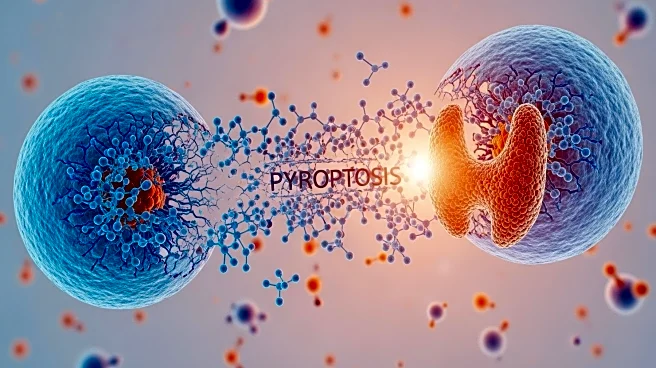What is the story about?
What's Happening?
Recent research has highlighted the role of pyroptosis, a form of programmed cell death, in revolutionizing thyroid cancer care. Pyroptosis is characterized by pore formation in the plasma membrane, leading to cell swelling and the release of intracellular contents. This process is triggered by various signaling pathways, including caspase-dependent and granzyme-dependent pathways. The study explores how these pathways can be manipulated to enhance immune responses against cancer cells, potentially transforming 'cold' tumors into 'hot' tumors that are more susceptible to immune attack.
Why It's Important?
Understanding the mechanisms of pyroptosis could lead to significant advancements in cancer treatment, particularly for thyroid cancer. By leveraging pyroptosis to enhance immune responses, researchers can develop new therapeutic strategies that improve patient outcomes. This approach could also be applied to other cancer types, broadening its impact on oncology. The study's findings may pave the way for innovative treatments that harness the body's immune system to target and eliminate cancer cells more effectively.
Beyond the Headlines
The exploration of pyroptosis in cancer treatment raises important ethical and scientific questions about the manipulation of cell death pathways. While promising, these strategies must be carefully evaluated for safety and efficacy to avoid unintended consequences. The research also highlights the potential for personalized medicine approaches, where treatments are tailored to the specific genetic and molecular profiles of individual tumors.
















